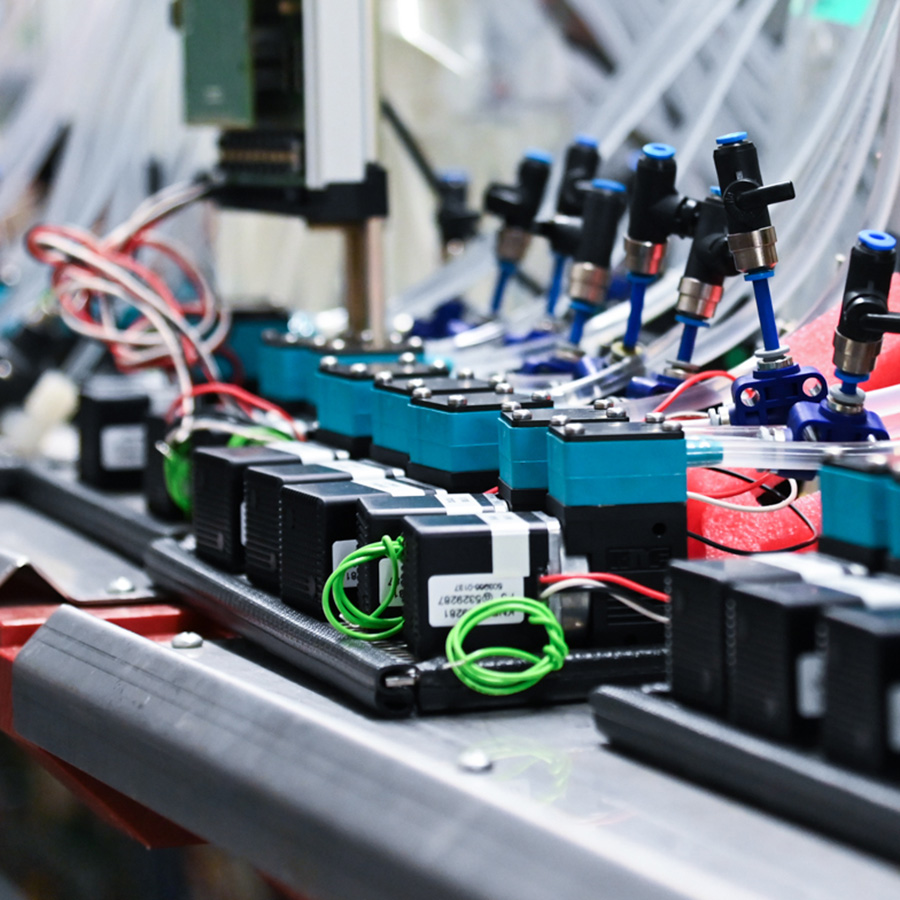
The Unique Properties of Demanding Media
Pumps play a crucial role in the transfer of liquids and gases in many industries. However, certain media properties hold unique challenges for pump applications that need to be considered during the planning process. Ranging from corrosiveness and abrasiveness to flammability and shear sensitivity, several factors can affect a pump’s performance and the requirements it has to meet.
What Makes Gases and Liquids Demanding
Pumps are an essential component in almost every industry to precisely and reliably move liquids or gases. In many cases, they must be customized to meet the specific needs of the application. As some media are especially challenging to handle for pump applications, it is therefore important that the systems in use match the specific properties of the used media to ensure flawless performance and longevity. So, what are the characteristics that can turn liquids or gases into demanding media?
- Corrosiveness: Corrosive applications involving strong acids or highly reactive chemicals are found in many industries and require the use of particularly robust materials to prevent wear and tear or damage to pump components.
- Abrasiveness: Media containing abrasive particles, such as certain types of inkjet inks or wastewater, can wear down and erode the pump components over time, leading to premature failure and the need for frequent repairs.
- Purity: In the laboratory, medical, pharmaceutical or food processing industries, it is critical to avoid contamination of media such as blood, vaccines or beverages. The microchip industry, for example, requires a completely ion-free setup for high-purity fluid transfer. These strict requirements for clean processing can turn seemingly simple substances into challenging media.
- Flammability or explosiveness: The highly flammable or explosive nature of some gases or volatile liquids, such as methane, propane, or ethanol, poses special challenges and risks to people and equipment, requiring special handling and the highest level of leak-tightness to minimize the risk of unintentional ignition.
- Shear sensitivity: Some media require particularly gentle handling due to their high risk of being damaged or degraded by the mechanical forces acting during the pumping process. This can be a particular issue for media containing living cells or organisms, such as bacteria or yeast. Synthetic materials such as polymer solutions used in water treatment or oil and gas production can also be sensitive to shear.
- Temperature: Particularly high or low media temperatures can cause pump components to expand or contract, resulting in reduced efficiency and increased wear. At certain temperatures, some media may become more viscous or less stable, which can further affect the performance of the pump.
- Value: Some gases, such as helium, argon or special process gases, are particularly valuable and require high tightness to prevent loss during transport.
Finding the Right Pump for Each Application
These characteristics can be difficult for some pump types to handle, as many of them rely on close tolerance fits and seals, which can be clogged, damaged or worn out by viscous and abrasive liquids or corroded by aggressive gases. Several setups or pump technologies may also not be leak-proof, which might lead to avoidable damage to seals or mechanical parts and results in increased maintenance as well as longer downtimes. Furthermore, the systems in use may operate at an overall lower efficiency. It is in these cases that diaphragm pumps can be particularly helpful, as they offer several advantages by design.
Read more to find out why diaphragm pumps are the ideal choice for demanding media.
75 Years: KNF Celebrates Company Anniversary
A treasure chest filled with memories, facts and stories. Learn more about KNF’s company history.




